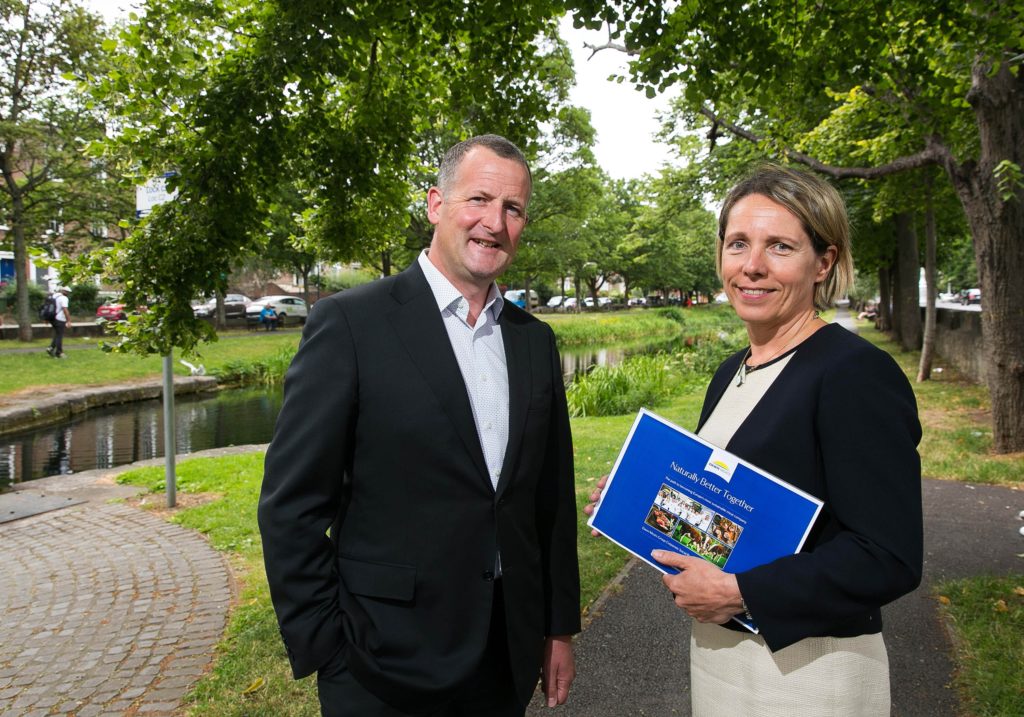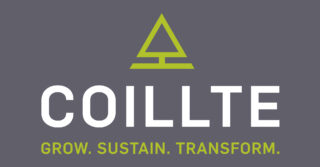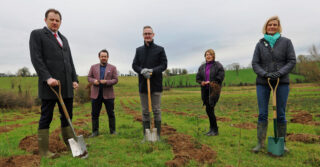Dawn Meats joins over 600 companies worldwide striving for a 1.5°C future by committing to science based targets
The low carbon agenda has been a key focus area for business in recent times, regardless of the operating sector. In Ireland, this agenda has never been more relevant than in the agri-sector where it accounts for around a third of the country’s carbon emissions. Given the proportion of Irish agricultural production which is exported to countries not already self-sufficient in equivalent domestic origin products, it is hardly surprising that emissions here are a higher proportion from agriculture than in the importing countries concerned. At Dawn Meats, they are very aware of the role they can play in securing Ireland’s transition to a low carbon economy. Through behavioural change the company can assist the efforts to decarbonise the agri-food sector and encourage all sectors of the economy and society to contribute for progress to be achieved.
Since its foundation in 1980, Dawn Meats has sought to manage and improve resource use efficiency and has focussed attention on the most material environmental concerns: Emissions, Energy, Water, Biodiversity and Waste. The company knows the challenges ahead will not be easy and will progressively become more difficult to achieve. It will take considerable effort in product and process innovation through collaboration and transformation within operations and those of their supply partners, to achieve the ambitious goals the company has set themselves.
Dawn Meats is one of the companies in Business in the Community’s Leaders’ Group on Sustainability having achieved the Business Working Responsibly mark in 2016 and playing a significant role in the development of the BITCI’s Low Carbon Pledge. The Pledge aims to get companies to commit to decreasing their carbon emissions, but also places a huge amount of importance on collaboration. Collaboration is vital to success and getting companies sharing best practice through open dialogue with their peers will deliver the next viable innovation when it comes to energy efficiency and lowering the carbon footprint.
Dawn Meats recognises the challenge posed by climate change and that any sustainable targets and solutions to global warming must be grounded in science. The company has been working for more than 10 years to reduce emissions both internally and across their supply chains. Traditionally the company has adopted a path of continuous improvement, setting stretch targets each year, securing the gains made in previous years and further embedding sustainability in the business culture.
As a responsible business, Dawn Meats recognises the urgency to adopt measures which deliver emissions intensity reductions and consistently joins with other stakeholders in collaborative projects, which aim to accelerate progress in this critical area. It is for this reason that Dawn Meats signed up to the SBTi (Science Based Targets initiative) in May 2019 and as a result becomes the first European beef and lamb processor to make such an ambitious commitment. Dawn Meats has already developed a pathway for its Scope 1 and 2 emissions and is currently working on solutions for Scope 3 emissions which will be submitted to the SBTi in the coming period. ( see below for short explanation on what scope 1,2 and 3 emissions are)
The SBTi is a collaboration between the Carbon Disclosure Project (CDP), the United Nations Global Compact (UNGC), World Resources Institute (WRI), and the World Wide Fund for Nature (WWF) and is one of the We Mean Business Coalition commitments. The SBTi champions science-based target setting as a powerful way of boosting companies’ competitive advantage in the transition to the low-carbon economy.
In these times of great change, the climate challenge is at the front and centre of societal debate. Organisations, sectors and countries need to be brave and bold in the carbon reduction targets they set for themselves. At Dawn Meats they believe we are ‘Naturally Better Together’ and call on other companies to share their vision in transforming a societal obligation into an opportunity for all.
Dawn Meats made their SBTi commitment public at the launch of their 2019 CSR Report in July of this year.
Scope 1 emissions (Direct GHG) – These are emissions that come from sources that are owned or controlled by the organisation
Scope 2 emissions (Energy Indirect GHG) – These are emissions from the consumption of purchased electricity, steam, and other sources of energy generated upstream from the organisation.
Scope 3 emissions (Other Indirect GHG) – These are emissions that are a consequence of the operations of an organisation, but are not directly owned or controlled by the organisation. Scope 3 emissions would include a number of different sources along your value chain, such as business travel and waste.







